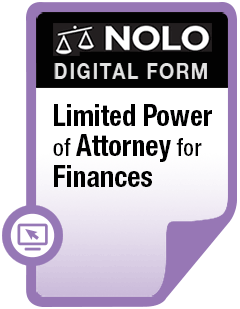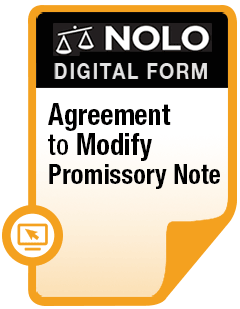Your first step in recovering from identity theft is recognizing the warning signs.
"Identity theft" is using a person's confidential identifying information without consent for the thief's benefit and to the victim's detriment. Identity theft can occur anytime your personal information is lost or exposed. An identity thief could live on your street, in a neighboring state, or overseas.
Victims often don't realize someone is using their information for a while. But the earlier you detect identity theft, the easier and quicker it will be to recover.
How an Identity Thief Gets Your Personal Information
Some ways a thief can get your personal information include:
- loss or theft of a wallet, purse, or bag containing items like credit cards
- mail theft, or
- a security breach at an online website or service provider.
An identity thief might use stolen information to access credit, benefits, and bank accounts or as identification when arrested for a crime.
What Are the Signs of Identity Theft?
It might start with a phone call from a collection agency for a debt you don't recognize, or an unfamiliar entry might show up on your credit report when you try to qualify for a home mortgage. It could start when you receive a court summons for a crime you didn't commit.
Here are ten red flags that indicate someone has stolen your identity.
1. You receive unexpected credit cards or account statements.
Getting statements or bills for accounts you didn't open indicates someone else is opening them in your name.
2. You're denied credit for no apparent reason.
Being denied credit might mean your credit score has dropped because an identity thief has opened new accounts using your personal information.
3. You receive calls or letters from unknown debt collectors.
If you start receiving calls about loans you didn't take out or other debts that aren't yours, inform the debt collector by phone and in writing that you're a victim of identity theft and are not responsible for the unpaid bill. Be sure to include copies of documents, such as a police report and Identity Theft Report (see below), demonstrating that you're the victim of identity theft.
4. Your bills and bank statements don't arrive in the mail.
While many people get their bills online these days, if you usually get bills and statements through the mail and suddenly don't get them anymore, an identity thief might have changed your address with the company or bank. Identity thieves still use old methods like stealing mail and dumpster diving to get their hands on important documents.
An easily-accessed mailbox stuffed with envelopes is a nice target for thieves. So pick up your mail regularly.
5. You notice inaccuracies or unauthorized transactions on your credit reports.
You can get free credit reports from the three major credit bureaus (Equifax, Experian, and TransUnion) by going to AnnualCreditReport.com. Under federal law, you're entitled to one free copy of your credit report every 12 months. However, the agencies now provide free weekly reports online, a service they started during the COVID-19 pandemic.
If you suspect an identity thief is using your information to open new accounts, get all three reports to see if the reports contain signs of identity theft, like inquiries that you didn't initiate and accounts you didn't open.
6. You notice unusual charges on your credit card billing statement.
Even if the amounts are small, don't ignore them. An identity thief might be testing your account to see if charges will go through before attempting a large purchase.
7. You get a call from your credit card company asking if you made any outstanding charges or large purchases at an unusual location.
If you aren't traveling, faraway charges indicate identity theft. If you are traveling, leave your checkbook, Social Security card, and other unnecessary items in a safe place at home. If you take a laptop, smartphone, or another electronic device on your trip, make sure it's secure. It should be password-protected and have the latest Internet security software installed. Ask your hotel to recommend reputable Internet cafes or wifi spots before connecting online. Also, erase your online history after using a public computer
8. Someone uses your Social Security number to get a job or government benefits.
Check your Social Security benefits statement and if you find fraudulent use of your Social Security number, contact the Social Security Administration's fraud hotline at 800-269-0271.
9. You receive bills for medical services you didn't receive.
Receiving bills for medical services you didn't receive is an indicator that someone else is using your personal information. Another sign of identity theft is if your health care plan won't pay a legitimate medical claim because its records indicate you've reached your benefits limit, but you know you haven't.
10. Someone files a tax return in your name.
If someone else files a tax return in your name, that identity thief likely used your information to claim a fraudulent refund. To thwart tax-related identity theft, it's a good idea to file your tax return as early as possible in the tax year. To learn more, check out the IRS Taxpayer Guide to Identity Theft.
What to Do If You're a Victim of Identity Theft
If you become the victim of identity theft, you should freeze your credit immediately with all three major credit bureaus. Also, go to the FTC's website IdentityTheft.gov to report the identity theft, get a recovery plan, and get an Identity Theft Report.
You'll have to answer some questions about your situation and then the site will use that information to create a personal recovery plan for you. The site will take you through each recovery step, update your plan as necessary, track your progress, and pre-fill out forms and letters for you.
In many cases, you'll be able to use an Identity Theft Report instead of a police report to clear up credit issues related to identity theft. Still, in some cases, it might be helpful to have a police report. And if any of your accounts have been tampered with or new accounts opened in your name, call those companies.
When to Talk to an Attorney
For additional help, seek out advice from a consumer protection or debt attorney. An attorney can assist you with straightening out your financial matters, dealing with debt collectors, or getting the credit reporting agencies to delete fraudulent information from your credit report after an identity thief gets credit in your name.
Talk to a Lawyer
Need a lawyer? Start here.
How it Works
- Briefly tell us about your case
- Provide your contact information
- Choose attorneys to contact you
- Briefly tell us about your case
- Provide your contact information
- Choose attorneys to contact you



